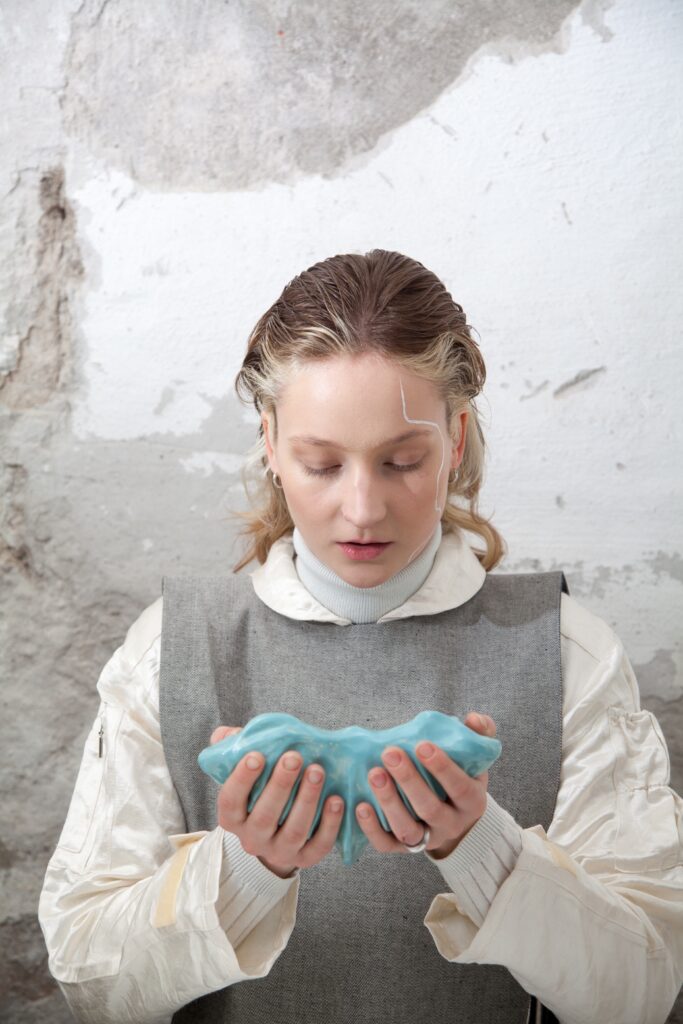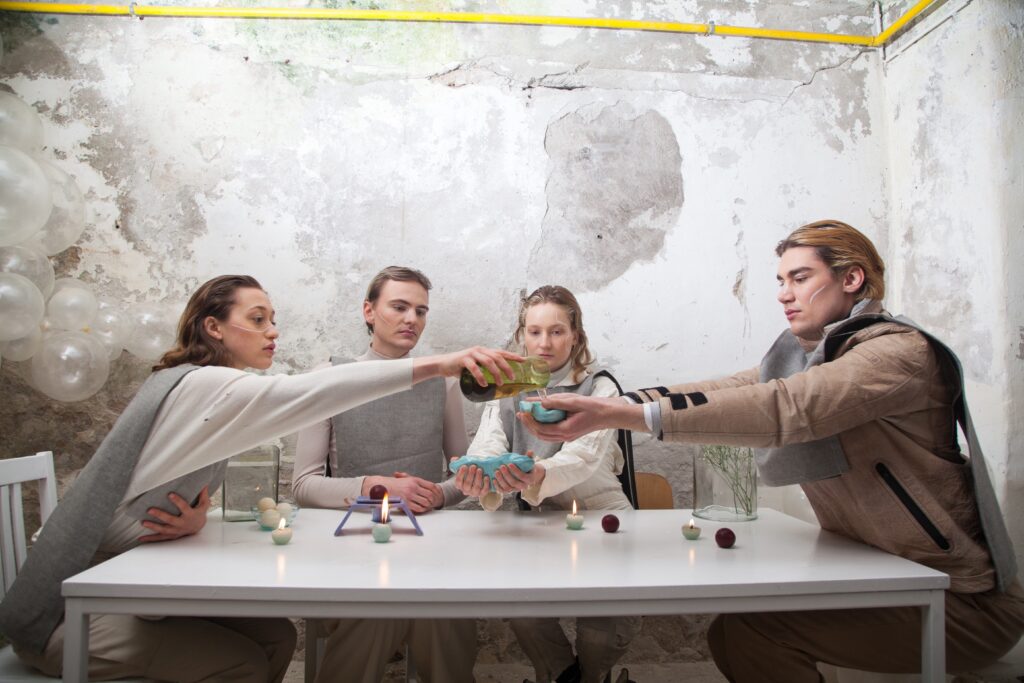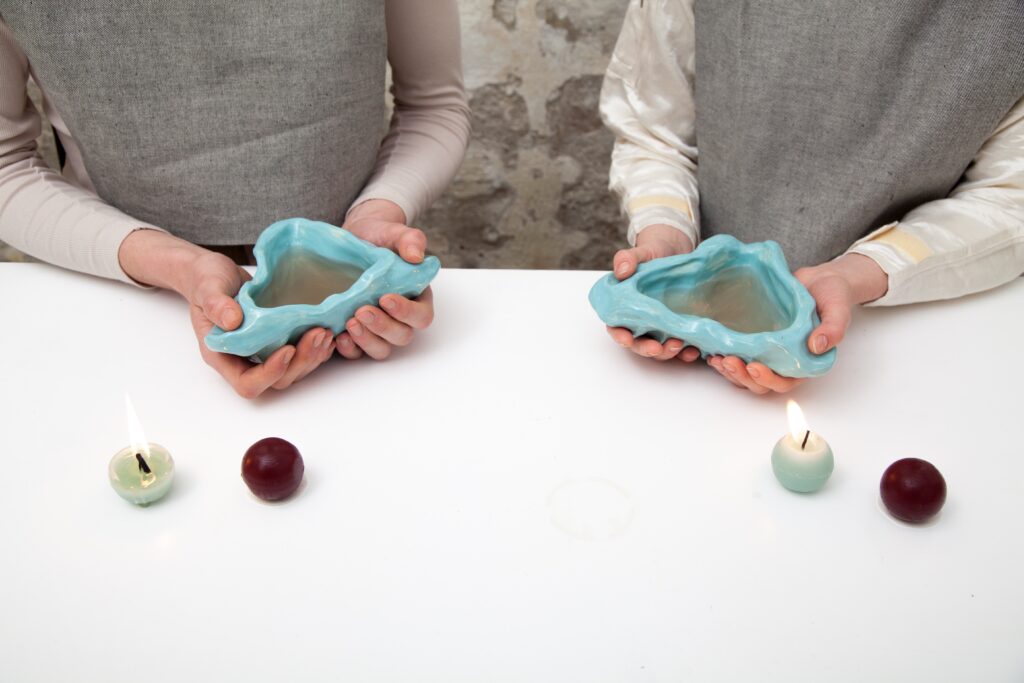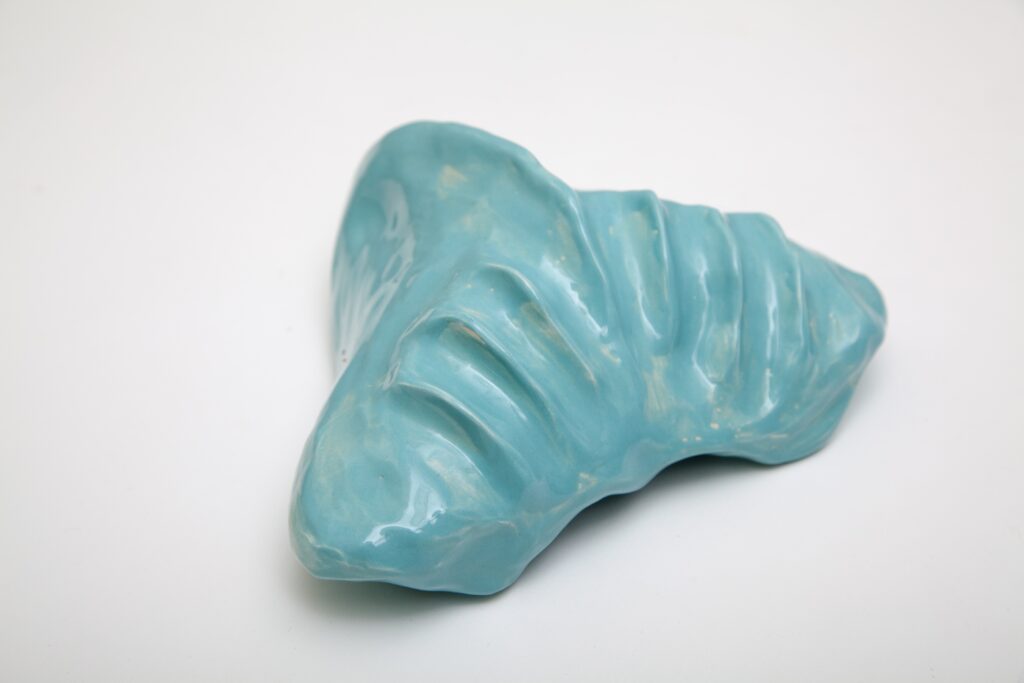SURROGATE DINING, WS 20/21
SCENARIO
Over the past 200 years, the world's population has continued to grow, while many formerly fertile soils have become contaminated or unusable due to land degradation, or have simply been converted to building land. Thus, traditional food production has become increasingly difficult and a cause of numerous conflicts. To counteract these problems, a radical reorientation of food policy was decided at a worldwide congress. Today, food is no longer consumed on a self-responsible basis, but within the framework of a strictly structured centralized system.
Every person is provided with two meals a day to cover all his or her needs. In order to ensure fair distribution and to prevent possible political influence, the organization of food supply worldwide is implemented by an AI, the ANA (Augmented Nutrition Authority). Each person receives a chip implant, which measures the body's nutrient needs and transmits them to the ANA. It gives access to the general nutrition supply plan, calculates the consumption and composition of vitamins and nutrients in the body and determines the portion size and personal nutrient composition needed in each case. Based on this data, nutrients are compressed into small spheres and distributed daily at community distribution sites where they can be taken immediately.
This way of eating, which no longer has anything in common with traditional food, has also greatly changed society as a whole, leading to anonymity and growing problems such as loneliness, depression, breakdown of social and family ties, and widespread emotional poverty. After some time, even physical transformations had to be noticed, especially the gradual regression of the dentition. A pronounced jaw and beautiful teeth have become an increasingly difficult to achieve ideal of beauty. In order to preserve and train them at least partially, a second capsule requiring chewing had to be introduced.
CONCEPT
We swallow capsules that have been created based on ANA data. It's like battery recharging, only with nutrients. A daily private necessity, like brushing teeth or going to the bathroom. It used to be different. Until the middle of the Anthropocene era, people prepared their own food and took it together in a kind of ritual. This may seem strange to some, but it's not such a bad idea. That's why informal groups have now formed that want to re-establish a common form of eating. Although they too only have the prefabricated capsules at their disposal, there is a lot that can be done with them in terms of preparation and the way they are eaten.
The entire ritual of a Surrogate Dining relies on slow processes, involvement of the individual persons and a clear exit from everyday life. By interacting with specific tools, a mood is created in which emotional exchange and social community are rekindled. For example, participants* use so-called Aprons, which are placed over their everyday clothes like ritual garments, and their uniformity and special cut lead to calm and relaxed movements. Before the capsules are eaten, they can be melted with the help of a special device. Thus, a certain kind of preparation takes place again at the table, which allows both a new engagement with the material and new subjective experiences of consistency.
People during Surrogate Dining are, the idea goes, at the table with all their senses, feeling secure and stepping into a space for a short time that takes them out of their highly paced yet meaningless daily lives. The ritualized meal together not only improves the sense of time, but also
stress management, the perception of physical and emotional needs, and emotional exchange. Skills that have increasingly atrophied in an optimized world. Thus, these practices (also) serve to fight the mental civilization diseases of our time and to let a new social cohesion emerge.








